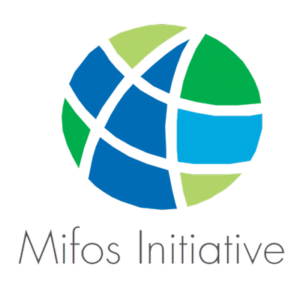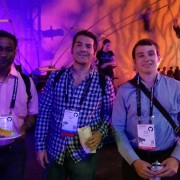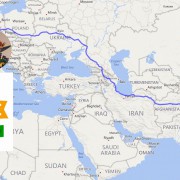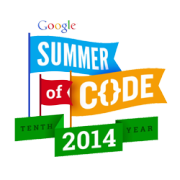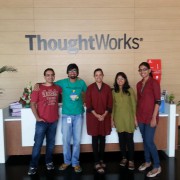 Thoughts on how the Mifos community can follow David Eaves’ advice on enabling a better community experience based on his analysis of Mozilla metrics and dashboards analyzin contributors and their interactions.
Thoughts on how the Mifos community can follow David Eaves’ advice on enabling a better community experience based on his analysis of Mozilla metrics and dashboards analyzin contributors and their interactions.
David Eaves, a public policy entrepreneur, open government activist and negotiation expert who advises businesses on open source strategies and community management, put together a fascinating post on his blog. He takes a look at a set of dashboards and metrics Mozilla is using to measure the efficiency of its contributor community. He has pulled together some great insight that our (and any open source community) could follow to maintain better relationships with contributors and enable greater interaction and collaboration across a community. We’re very excited to see such a large project like Mozilla doing this and should try to do it more formally with our contributor data in MifosForge.
For us, an area that we would really like to dig deep down into is metrics of our implementer community. We’re building pretty solid data on who our independent users are and who are specialists implementing Mifos along with rough metrics to measure that progress. To help grow the user base of our software and identify how we can increase adoption, we need to understand the overall implementer experience. We’ve begun to analyze the lifecycle of a deployment, pinpointing the pain points along the way. Once we know more about where our users are, why they use our software, and what stage of deployment is most challenging, we can begin to improve the overall experience – i.e. make our software easier to deploy, improve our documentation, etc.
Here are a few noted highlights from David’s post.
Reducing Barriers to Cooperation
David on “Why the contributor experience is a key driver for success of open source projects”
“This task is made all the more complicated since Mozilla’s ability to fulfill its mission and compete against larger, better funded competitors depends on its capacity to tap into a large pool of social capital – a corps of paid and unpaid coders whose creativity can foster new features and ideas. Competing at this level requires Mozilla to provide processes and tools that can effectively harness and coordinate that energy at minimal cost to both contributors and the organization.
As I discussed in my Mozilla Summit talk on Community Management, processes that limit the size or potential of our community limit Mozilla.Conversely, making it easier for people to cooperate, collaborate, experiment and play enhances the community’s capacity. Consequently, open source projects should – in my opinion – constantly be looking to reduce or eliminate transactions costs and barriers to cooperation. A good example of this is how Github showed that forking can be a positive social contribution. Yes it made managing the code base easier, but what it really did was empower people. It took something everyone thought would kill open source projects – forking – and made it a powerful tool of experimentation and play.”
We have struggled with this given the learning curve for Mifos is so high and the codebase can be so murky once you get deep into it. Seeking to overcome that, we try to put out as clear of documentation as possible, use tools that are open and transparent, and use the best-in-class open source libraries as we modularize our platform. That being said, it requires a strong culture and a deep commitment to reducing these barriers that we as many open source projects must improve upon.
Building a Better Experience
David on “Using Data to Build a Better Contributor Experience”
“Unfortunately, it is often hard to quantitatively assess how effectively an open source community manages itself. Our goal is to change that. The hope is that these dashboards – and the data that underlies them – will provide contributors with an enhanced situational awareness of the community so they could improve not just the code base, but the community and its processes. If we can help instigate a faster pace of innovation of change in the processes of Mozilla, then I think this will both make it easier to improve the contributor experience and increase the pace of innovation and change in the software. That’s the hope.
…An open source communities volunteer contributors should be a treasured resource. One nice thing about this dashboard is that you can not only see just volunteers, but you can get a quick sense of those who haven’t submitted a patch in a while.
Using this view we can see who are volunteers who are starting to participate less – note the red circle marked “everything okay?” A good community manager might send these people an email asking if everything is okay. Maybe they are moving on, or maybe they just had a baby (and so are busy with a totally different type of patch – diapers), but maybe they had a bad experience and are frustrated, or a bunch of code is stuck in review. These are things we would want to know, and know quickly, as losing these contributors would be bad. In addition, we can also see who are the emerging power contributors – they might be people we want to mentor, or connect with mentors in order to solidify their positive association with our community and speed up their development. In my view, this should be core responsibilities of community managers and this dashboard makes it much easier to execute on these opportunities.”

With a business domain that is so complex and a product that is so niche, we fully know that finding quality contributors is a challenge. Retaining them and keeping them actively involved is a priority. We can use data to help us know who is actively contributing, who is dropping off and what areas of the product they’re contributing to. By understanding the overall contributor experience, we can build the processes and culture to increase community stickiness and incent volunteers to participate more. Our mission of 3 Billion Maries is strong and we try to actively recognize our Star Contributors but we have much more we could do – how do you think we can increase volunteer contribution? More in-depth projects? Greater ownership of the project? Deeper connection to the entrepreneurs we’re empowering? Simpler projects? More engaged mentorship? Professional Networking and Development? There are many levers we can adjust to build a better experience, which matter to you most?
Understanding community is vital to helping it thrive and be successful. For Mifos we need to focus on both our contributors and even more so our implementers – this community is the group that can help take our technology the last mile to the regions where microfinance institutions need it most.
